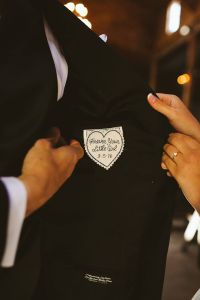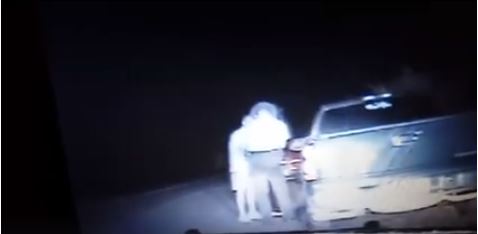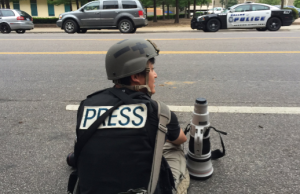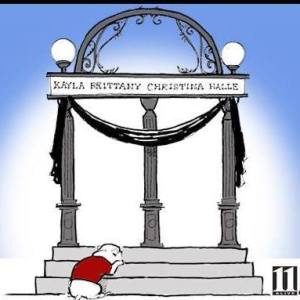 Reaching the 57th floor of my existence hasn’t been the smoothest elevator ride. Sure, there have been plenty of floors that have passed without a worry. Then, there are those rides where I’ve ascended too fast, dropped a few floors, stalled, rumbled, rattled, and limped toward my destination. On recent rides, one particular date seems to bring a either a dramatic rise, or a heart stopping fall.
Reaching the 57th floor of my existence hasn’t been the smoothest elevator ride. Sure, there have been plenty of floors that have passed without a worry. Then, there are those rides where I’ve ascended too fast, dropped a few floors, stalled, rumbled, rattled, and limped toward my destination. On recent rides, one particular date seems to bring a either a dramatic rise, or a heart stopping fall.
March 5th.
On March 5, 2011, my father passed away after a lengthy fight with prostate cancer.
March 5, 2016, is the day my middle child married the man of her dreams.
Now comes March 5, 2017. Another ear piercing drop.
Gary Rothwell and I became best buddies when we were 5-years-old. My father accepted a new job at the University of Florida midway through the school year, so I was a late arrival at P.Y. Yonge, a rather eye opening and tolerant institution just a pebble’s throw from the famous graffiti covered wall on Highway 441 in Gainesville, Florida. On my first day of kindergarten, the teacher introduced me to the class.
“Children, this is Jerry.”
Gary Rothwell was one of the first to greet me.
“Hey,” exclaimed one of our classmates. “Jerry and Gary. That rhymes.”
After that, Gary and I were inseparable. I say that, but there were plenty of teachers over the years who did their best to separate us. I was a rambunctious child, and Gary was my go-to partner in mischief. We were constantly scheming to keep the school entertained, or at the very least, keep ourselves entertained. We were class clowns, the self-appointed merry pranksters. We never broke the law, but I imagine we caused more than a few teachers to regret their career choice.
It’s a friendship that has transcended graduation and adulthood. So, when March 5, 2011, arrived, Gary went out of his way to attend my father’s funeral. Likewise, when Gary’s mother passed away on March 5, 2017, I planned a trip back home to my beloved Gainesville, Florida.
To make the journey, I would need a day off of work. We, meaning WXIA-TV, were already shorthanded, so I would need to labor beyond my normal hours to accommodate my absence. No one gave me that directive. I came up with it all on my own. I mentioned something to that effect to Gary, who clearly noticed my hurried, anxious tone. He responded with a statement as wise as King Solomon.
“Do what you need to do,” Gary quipped. “But it’s not like they can’t do without you.”
There are moments when I am actually arrogant enough to think the world of television news just can’t possibly survive a moment without me. My priorities run amuck, leading to long days and long absences from home that end with my brain still pounding with the call of unfinished tasks. My loved ones patiently wait their turn as I’m consumed with the self-imposed demands of a world that only cares for me when I give mile after extra mile.
Gary’s message was clear. He wanted and needed my company and my comfort. There’s no way to measure the accomplishment of simply being at his side for a few hours in his time of mourning. No one waiting on my “to do” list was upset when I informed them why their issue would have to wait until the following week. It’s not like Atlanta isn’t filled with capable news reporters ready and willing to fill my void, and quite adequately. No one’s television screen went dark during my absence. No one yearned for my increasingly gray locks. No one complained that their morning passed without the sound of my familiar yet mediocre voice.
Also waiting for me in my hometown was my mother. The loss of my father six years ago has left quite a void on NW 24th Way. She recently endured hip replacement surgery, and isn’t getting around quite as easily as she once did. I can’t fill the hole left by the departure of my well accomplished dad, but two days spent by my mom’s side, reminiscing, watching basketball, treating each other to dinner and a movie, are more valuable than any breaking news coverage, more treasured than twenty Emmy awards.
It’s a lesson I need to remember every single day. My hand can do more good holding my wife in prayer than it can writing a million news stories. My voice is more valuable telling my children, “I love you,” than it is reminding Atlanta of its most serious traffic issues.
It’s not that my job is unimportant. I don’t plan to stop giving my all at work. I’m far too obsessive. But as funerals and weddings (I got an invitation to another today, the daughter of a friend) appear at the elevator door more frequently, I need to be more aware of the value of my attention. No tweeting when my wife wants to talk. No sneaking around to text when I’m supposed to be helping her with her Bible study. No drifting off to plan the rest of my week when friends, loved ones, or neighbors need my ear.
You never know when it might be someone else’s March 5th.
Now, if you’ll excuse me, I’ve got to take this call from my daughter. If you don’t hear from me tomorrow, it’s because I’m on the phone with my mom.
Forgive me.
The elevator is rising toward the 58th floor.
I’d love it to be a smooth ride, but it’s not likely. So, may the doors open to ways I can make that ride a little easier for someone else.
 . This will not go down as one of my favorite years. 2016 is the multi-car pile up that ruins a trip to the beach. I survived with a badly damaged hood, scrapes along the front panel, dragging my back bumper toward 2017. At least I have insurance that come in the form of loving friends and family. I’m going to have to change four flat tires and rebuild my engine before I can finish that trip to the beach, but I’ll make it. There is sunlight at the edge of darkness.
. This will not go down as one of my favorite years. 2016 is the multi-car pile up that ruins a trip to the beach. I survived with a badly damaged hood, scrapes along the front panel, dragging my back bumper toward 2017. At least I have insurance that come in the form of loving friends and family. I’m going to have to change four flat tires and rebuild my engine before I can finish that trip to the beach, but I’ll make it. There is sunlight at the edge of darkness. On a rural Georgia road, covered by nightfall, comes a powerful beam of light that cuts through the darkness of hatred and misunderstanding.
On a rural Georgia road, covered by nightfall, comes a powerful beam of light that cuts through the darkness of hatred and misunderstanding. I don’t know Katrina Frye Shealy, and she doesn’t know me.
I don’t know Katrina Frye Shealy, and she doesn’t know me.  It’s not supposed to happen this way.
It’s not supposed to happen this way.